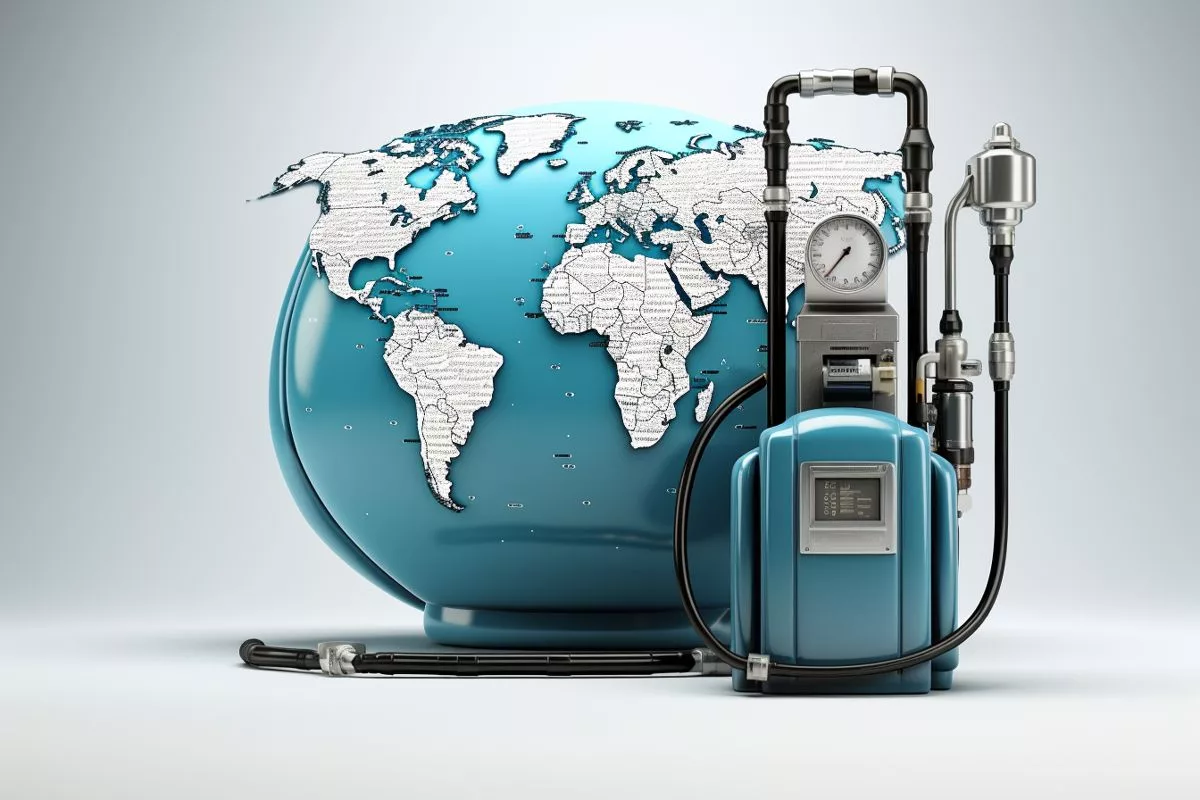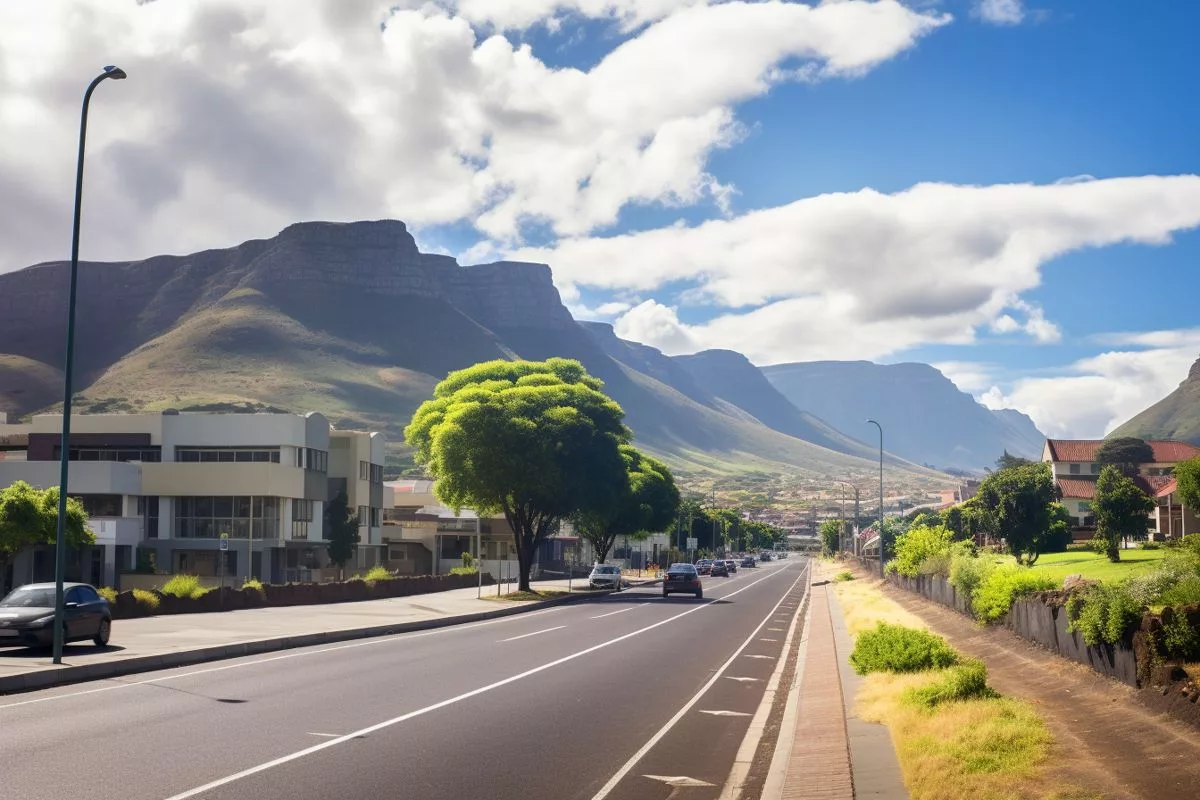South Africa’s Minister of Mineral Resources and Energy, Gwede Mantashe, announced significant fuel price modifications that will take effect from November 1, 2023. The adjustments are determined each month based on international and local influences, such as the average Brent Crude oil price, international petroleum product prices, the Rand/US Dollar exchange rate, and the implementation of the slate levy. The government’s decision to modify fuel prices aims to maintain a balance in the country’s economy, considering international influences alongside local requirements, ultimately encouraging economic stability and growth.
What factors contribute to fuel price changes in South Africa?
Fuel prices in South Africa are revised every month and are determined by various factors. These include international and local influences, such as the average Brent Crude oil price, international petroleum product prices, the Rand/US Dollar exchange rate, and the implementation of the slate levy. These factors all contribute to the basic fuel prices of petrol, diesel, and illuminating paraffin, which are adjusted accordingly each month.
South Africa’s Fuel Price Changes
South Africa’s Minister of Mineral Resources and Energy, Gwede Mantashe, has declared a significant modification in the country’s fuel prices starting from November 1, 2023. Since fuel prices in South Africa are revised every month, numerous factors are taken into account, such as international and local influences. These elements affect the expense of importing both crude oil as well as finished goods, which are determined at the international level, including shipping charges.
Factors Contributing to Price Adjustments
The reasons behind the price changes are listed below:
- Crude Oil Prices
Throughout the period analyzed, the average Brent Crude oil price increased from 91.86 to 88.72 USD. This rise was caused by multiple events, including (a) an increase in global crude oil stocks due to the higher production by non-OPEC+ producers; (b) the US lifting sanctions on Venezuela, resulting in a positive outlook on supply; and (c) the relatively low influence of the Israel-Hamas conflict on the flow of crude oil, despite taking place in the oil-rich Middle East region.
- International Petroleum Product Prices
In the period analyzed, the average international product prices of petrol, diesel, and illuminating paraffin followed the downward trend of crude oil, while LPGas prices rose due to higher propane and butane prices. These variations led to lower contributions to the Basic Fuel Prices of petrol, diesel, and illuminating paraffin by 207.06 c/l, 115.15 c/l, and 105.18 c/l, respectively.
- Rand/US Dollar Exchange Rate
The Rand experienced a slight depreciation against the US Dollar during the period analyzed, moving from 19.00 to 19.08 Rand per USD. This shift resulted in higher contributions to the Basic Fuel Prices of petrol, diesel, and illuminating paraffin by 6.34 c/l, 7.57 c/l, and 7.61 c/l, respectively.
- Implementation of the Slate Levy
Starting September 2023, the cumulative slate balance on petrol and diesel reached a negative balance of R6.2 billion. As a result, the slate levy will rise by 21.92 c/l to 52.62 c/l and will be implemented in the price structure of petrol and diesel from November 1, 2023.
Fuel Prices for November 2023
Considering these local and international factors, the fuel prices for November 2023 will be adjusted as follows:
- Petrol (both 93 and 95 ULP & LRP): a decrease of 178.00 c/l
- Diesel (0.05% sulphur): a decrease of 85.08 c/l
- Diesel (0.005% sulphur): a decrease of 82.08 c/l
- Illuminating Paraffin (wholesale): a decrease of 97.00 c/l
- SMNRP for IP: a decrease of 130.00 c/l
- Maximum LPGas Retail Price: an increase of 149.00 c/kg
The fuel price schedule for different zones will be published on October 31, 2023. This announcement serves as a critical update for South African residents and businesses, as fuel expenses directly impact various aspects of daily life, including transportation, food prices, and overall economic growth. It is crucial to monitor these monthly revisions to make informed decisions and plan accordingly.
The Impact of Fuel Price Changes on South Africa’s Economy
Historically, alterations in fuel prices have been known to affect the worldwide economy as well as individual nations, leading to both positive and negative outcomes. In this instance, the South African government’s decision to modify fuel prices aims to maintain a balance in the country’s economy, considering international influences alongside local requirements. By staying informed about such adjustments, South Africans can better comprehend their economic landscape and navigate the ever-changing realm of energy and fuel costs.
As global events continue to shape the oil and fuel sector, it is essential for countries like South Africa to adapt to price and supply shifts. By reassessing fuel prices monthly, the government ensures that the nation remains prepared for fluctuations in the market and can make informed decisions, ultimately encouraging economic stability and growth.
1. What are the factors contributing to fuel price changes in South Africa?
Fuel prices in South Africa are revised every month and are determined by various factors. These include international and local influences, such as the average Brent Crude oil price, international petroleum product prices, the Rand/US Dollar exchange rate, and the implementation of the slate levy.
2. Why are fuel prices adjusted every month in South Africa?
Fuel prices in South Africa are adjusted every month to maintain a balance in the country’s economy, considering international influences alongside local requirements, ultimately encouraging economic stability and growth.
3. What is the implementation of the slate levy?
The slate levy is a fund that is used to stabilize the price of fuel in South Africa. It is implemented when the cumulative balance on petrol and diesel reaches a certain level, and it is increased or decreased to adjust the fuel price.
4. What is the impact of crude oil prices on fuel prices in South Africa?
The average Brent Crude oil price is one of the factors that contribute to fuel price changes in South Africa. Higher crude oil prices result in higher fuel prices, while lower crude oil prices result in lower fuel prices.
5. What is the impact of international petroleum product prices on fuel prices in South Africa?
The international product prices of petrol, diesel, and illuminating paraffin also contribute to fuel price changes in South Africa. Higher international product prices result in higher fuel prices, while lower international product prices result in lower fuel prices.
6. What is the impact of the Rand/US Dollar exchange rate on fuel prices in South Africa?
The Rand/US Dollar exchange rate also contributes to fuel price changes in South Africa. A weaker Rand results in higher fuel prices, while a stronger Rand results in lower fuel prices.
7. What are the fuel price adjustments for November 2023?
The fuel prices for November 2023 in South Africa will be adjusted as follows:
– Petrol (both 93 and 95 ULP & LRP): a decrease of 178.00 c/l
– Diesel (0.05% sulphur): a decrease of 85.08 c/l
– Diesel (0.005% sulphur): a decrease of 82.08 c/l
– Illuminating Paraffin (wholesale): a decrease of 97.00 c/l
– SMNRP for IP: a decrease of 130.00 c/l
– Maximum LPGas Retail Price: an increase of 149.00 c/kg
8. How do fuel price changes impact South Africa’s economy?
Fuel price changes impact various aspects of daily life in South Africa, including transportation, food prices, and overall economic growth. By staying informed about these monthly revisions, South Africans can better comprehend their economic landscape and navigate the ever-changing realm of energy and fuel costs. The government’s decision to modify fuel prices aims to maintain a balance in the country’s economy, considering international influences alongside local requirements, ultimately encouraging economic stability and growth.








